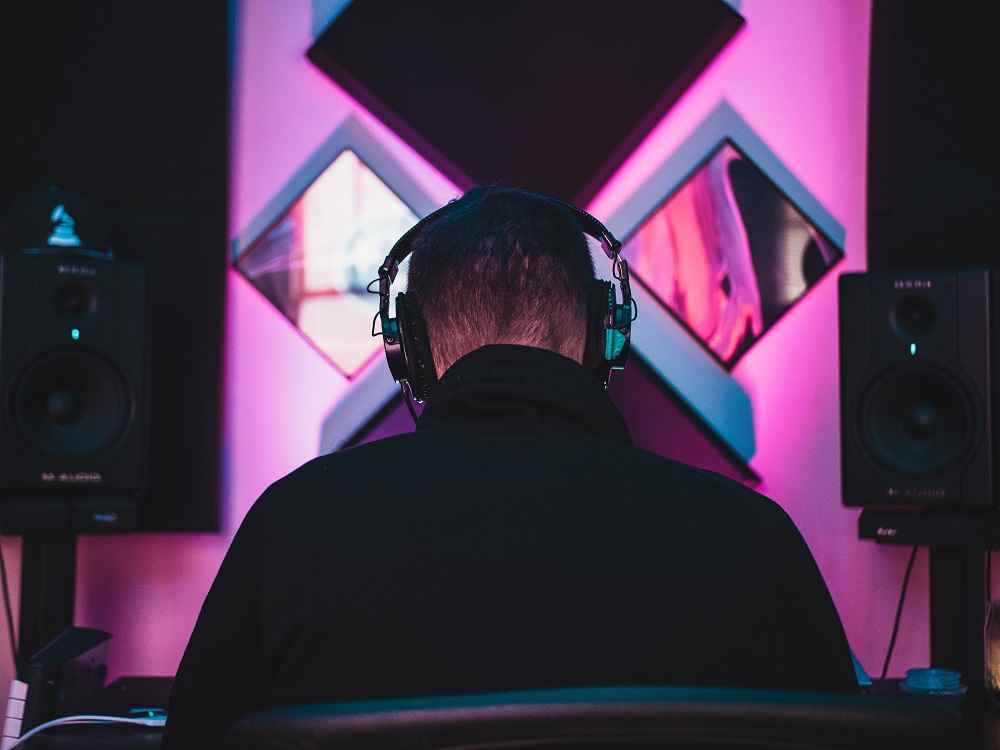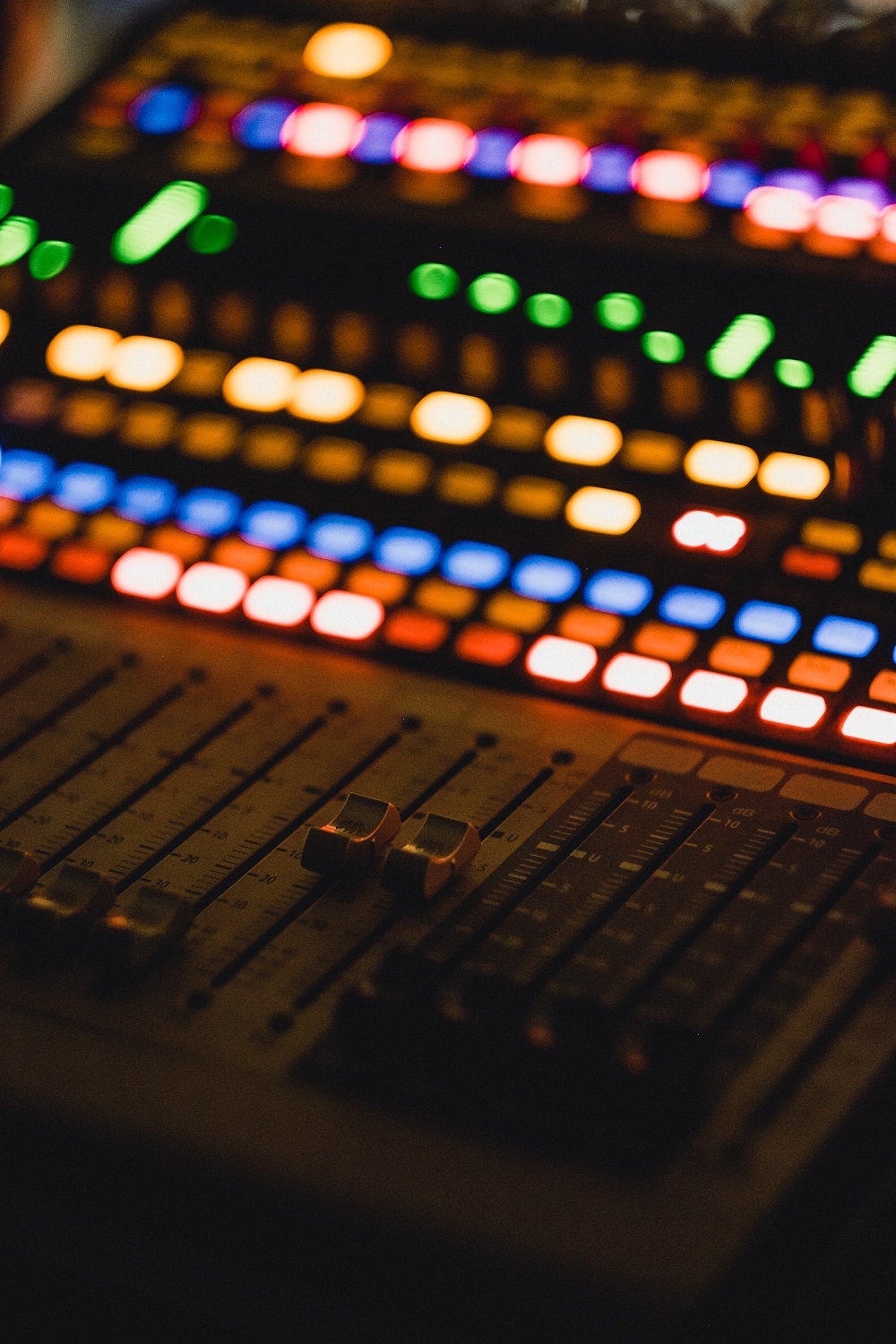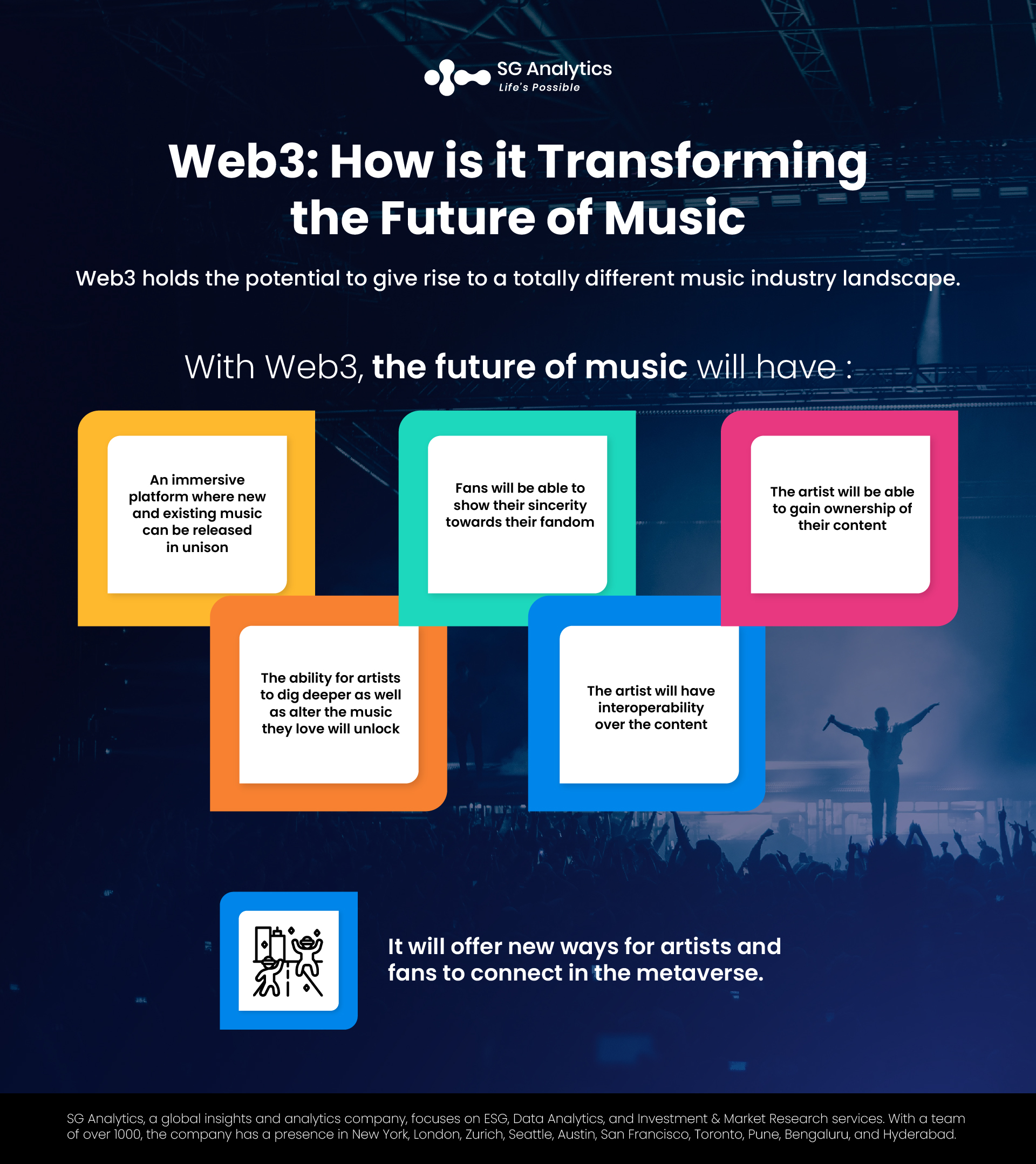Many are aware of the disruptive powers of blockchain technology. Today, it seems like every industry, ranging from tech and finance to e-commerce and supply chain, is exploring new avenues to successfully incorporate blockchain into their business framework and bring Web3 to the mainstream. While the future looks fairer, more creative, and bewildering than the one we are currently used to, it is, however, time for a change. However, for new technologies to fully integrate into everyday operations, it is equally important to turn their attention toward the components that populate our everyday reality, including— music, pop culture, art, film, literature, and more.
Over the last few years, there can be seen many conversations being initiated about how artists and musicians can take control of their careers by leveraging Web3 technology. Platforms such as royal.io, sound.xyz, and Catalog have enabled a handful of artists to break through. 3LAU had raised almost $12 million from his fans in 2019. Top stars, including the Chainsmokers, NAS, & Diplo, have followed the same.

The most significant rule about technology and adoption is that new technologies become dominant when they seep into our everyday lives. For example, let's recall the advent of Web2 streaming platforms, including Spotify and Pandora. When they were initially launched in the late 2000s, the platforms were met with popular suspicions. Many music fans even questioned the lack of ownership arising due to the streaming service model. They also complained about sound quality or how streaming platforms could compete with their own personalized music libraries.
Read more: The Science of Music: How Big Data Is Transforming the Music Industry?
Ever since the emergence of Spotify, music listeners have grown accustomed to storing a plethora of songs on their iPods and systems, building custom playlists, and adjusting album artwork. Gradually, Spotify emerged as a household name and replaced iTunes, which was once considered the leader in music listening technology.
What is Web3?
Web3 is disrupting the gatekeepers’ targeted-advertising businesses as it is shifting the ownership of required consumer data away from them and into the hands of the consumers. Web3 is an online project that employs open source and semantic web technology to create a comprehensive resource for music fans.

Web3 promotes peer-to-peer interactions with no reliance on centralized platforms as well as intermediaries. Users enjoy total control over their own data, content, and algorithms. They can govern the blockchain protocols employed by them to own the governance tokens. The user can participate as a shareholder and own the protocols’ tokens or cryptocurrencies.
Web3 innovations are moving the world of the internet into new realms by giving rise to applications that were previously not possible. Today, users are able to control their own data as well as efficiently utilize trustless computing, which helps eliminate the need to trust and pay intermediaries.
Many startups are helping mainstream users mitigate the risks inherent to Web3 cryptocurrency trading and DeFi. Startups in analytics, security, market surveillance, and compliance are helping traditional financial services companies to remain secure and compliant while employing Web3 crypto and DeFi applications. Over the next couple of years, such innovation will empower users to address the wide range of Web3 risks.
Read more: With Subscriber Rate Declining, What Does the Future Hold for Netflix?

The New Realm of Music
While the music industry has not always been welcoming new technology, it is slowly booming to the unlimited possibilities offered by the NFT marketplace. The overall sales generated were $25 billion last year - which justifies the acceptance as well as the promise of Web3 and why everyone wants a piece of it. Blockchain is potentially reshaping the music industry.
Streaming service platforms have made it easier than ever for artists to find an audience and get their songs heard. However, they have also made it significantly harder for them to earn a living. Streaming services like Spotify and Apple Music normally pay the artists less than one cent per stream.
But Web3 holds the potential to change that!
The immersive, distributed platforms are being perceived as the next level of the internet that has the potential to offer new ways for artists and fans to connect in the metaverse. This new breed of applications and platforms will enable songwriters and performers to tap into new funding models. It holds the potential to allow thousands of people with a passion and talent for music to turn it into a plausible source of income.

The Impact of Web3 on the Future of Music
There has been a lot of hype concerning the unlimited possibilities that might be unlocked due to incorporating blockchain, web3, and metaverse technologies into the music industry. Music has been about social activities and bringing together people. The new platforms emerging based on immersive and experiential technologies offer an opportunity to share and enjoy music together in many ways. When combined with blockchains, cryptocurrencies, and web3, the industry will likely transform and create fairer deals for artists and offer them multiple ways to connect with their fans.
Another web3 application is a mixtape. It explores the concept of the creator economy as well as leverages the functionality of a blockchain called Mixtape Token. It allows fans to repay the artists they follow. Blockchain tokens can be used to unlock exclusive content.
Read more: Blockchain Gamification and the Emergence of Innovative Business Models
The promise of web3 is that it holds the potential to give rise to a totally different landscape where artists will have power over their content and will be compensated fairly. The idea is to offer an open, persistent, and collaborative environment in the metaverse that will be ideal for creating a social sharing and listening platform required to establish the element of connection between listeners and artists.

What does the future of music hold?
-
An immersive platform where new and existing music can be released in unison
-
Fans will be able to show their sincerity towards their fandom in a deeper way
-
It will unlock the ability for artists to do deeper as well as alter the music they love
-
The artist will be able to gain ownership of their content
-
It will help enhance the interoperability of content
Key Highlights
-
Web3, blockchain, and NFTs are enjoying the hype of having huge potential. These technologies and tokens will likely break through and mature.
-
Digital communities are set to become a major driving factor with the rise of this technology of the future.
-
Blockchain holds the potential to transform the music industry and businesses. The technology will radically change the ways music companies attract artists.
-
The thriving NFT marketplace is demonstrating the promise of Web3.
-
With Web3 expected to expand in 2022, companies are looking to collaborate with artists and the music business or build a new music business entirely.
Read more: How Are Foundation Models Fuelling the Future of AI?

Challenges that are Likely to Follow
With new technologies, there ought to be new challenges. And web3 is no exception, particularly with the blockchain and cryptographic elements. The tremendous amount of computing power to run specific blockchain algorithms is known to be horrendously power-hungry, thus leading to massive energy use and emissions. This is certainly one of the many problems that will have to be addressed by platforms that are likely to hop on web3-based music solutions to compete with existing streaming services.
However, one potential solution lies in the development of 'proof-of-stake' blockchain algorithms. They are recognized for being more efficient and less power-hungry. But many of the popular blockchain networks, including Ethereum, do not support it yet.
The other critical challenge is related to the regulatory framework around web3 technologies. The web3 ecosystem is today considered a wild west state, one that lacks laws and oversight. This inevitably indicates that scams and nefarious activities are rampant. While regulations are important for mass adoption, they are there to protect the end-user.
In this evolving era of low attention spans, with platforms like Tiktok and Snapchat attracting all the eyeballs, one industry that is still commanding the attention is - gaming. The music industry can take many lessons from this to make listening immersive as well as interactive.
With a presence in New York, San Francisco, Austin, Seattle, Toronto, London, Zurich, Pune, Bengaluru, and Hyderabad, SG Analytics, a pioneer in Research and Analytics, offers tailor-made services to enterprises worldwide.
A leader in the Technology domain, SG Analytics partners with global technology enterprises across market research and scalable analytics. Contact us today if you are in search of combining market research, analytics, and technology capabilities to design compelling business outcomes driven by technology.









